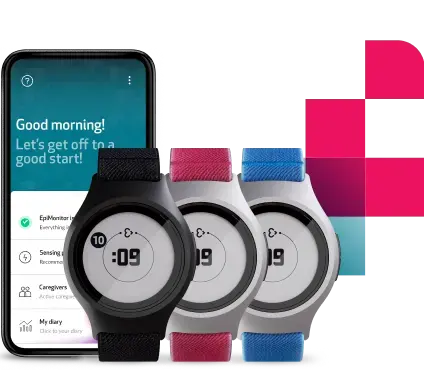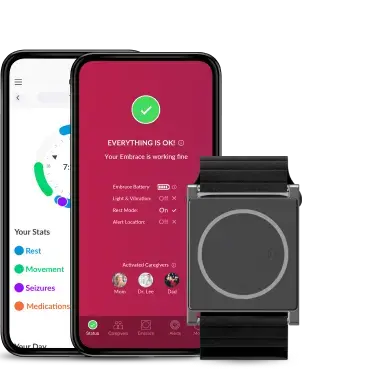How might COVID-19 affect me if I have epilepsy?
December 2019 birthed the discovery of a disease behind several pneumonia cases in Wuhan, China, called COVID-19. Little did we know that this previously unknown disease, which appears to have originated from a seafood market in Wuhan, would have become as widespread as it is today and labeled as a pandemic by the World Health Organization (WHO).
While some countries have been more badly hit, others have only recorded a few cases, and some haven’t had any. No matter which of the three realities you are currently facing, it is normal to worry and not know what to expect.
A lot of information is available through the news media and websites (we recommend getting information from trusted sources like the WHO), giving answers to some of your questions. Above all, it is important to take the necessary precautions and safety measures. You might also want to be ready, just in case there’s an outbreak in your community and things suddenly change.
COVID-19 and epilepsy
If you have epilepsy, you might have a thousand and one questions running through your mind, especially since it appears that elderly people and people with preexisting medical conditions (like diabetes, cancer, and hypertension) are more vulnerable to the disease. You may wonder: “Am I more prone to contracting the virus?”, “What happens to my meds supply if I’m asked to stay home?”, and “What happens if I have a seizure and have to go to the hospital?”
There is currently no information on whether people with epilepsy are more at risk of getting infected by the coronavirus. Also, it has not been proven that having it will trigger seizures. You should, however, call the dedicated hotlines specific in your community in case you start to feel unwell. You should also talk to your doctor to discuss the possible risks, how it may affect your condition, and any particular measures you should take with regards to your condition.
General tips to follow
- Protect yourself and others around you: Whether or not there’s been an outbreak in your community, it is important to practice recommended safety measures. The WHO gives general tips on how to prevent the spread of the virus, such as coughing/sneezing into your elbow or disposable tissue, washing your hands frequently with soap and water for at least 20 seconds, using alcohol-based hand sanitizers often, and maintaining a social distance of at least 1m (3ft) in public spaces. If you have pre-existing medical conditions like diabetes, then you should try to limit travel to only when it is necessary and avoid areas that have had a high number of outbreaks.
- If your caregiver gets sick: The Centers for Disease Control and Prevention (CDC) has advised that anyone who gets a fever or any symptoms of the coronavirus should generally stay home and away from contact with other people for about 14 days, which is the incubation period for the virus in a person. They should also immediately call the hotlines available for their community and get tested, just in case they have come down with it. If they do not have the disease, they can continue their roles when they recover. You might also need to make alternative arrangements for other people that can act as your caregivers instead until your regular ones get better.
- Caregivers that come down with COVID-19: For caregivers that become infected with the disease, it is normal to worry about who will take care of your child or patient while you recover. It is important to remember that you should take care of yourself first: call your healthcare practitioner and follow the instructions given to you. You can ask for someone’s help in taking care of your child or patient, or you can send them to homes of relatives or friends in order not to put them at risk.
- Don’t worry about medications: It is normal to be worried about drugs running out of stock in pharmacies due to the current situation. Such worries are not far fetched as the majority of the medicines in the US are imported from India and China. The Council of Foreign Relations has, however, advised US consumers not to worry because the FDA has only warned of one drug in short supply. Also, since the number of cases in China is reducing by the day, factories are beginning to reopen. The government and the FDA are also taking precautions to put things under control.
- Follow the preventive measures specific to your community: As the outbreak spreads more within communities and to others, there may be specific restrictions or guidelines released by the government or national authorities. Some communities have restricted travel, while others have advised community members to stay at home, except for urgent situations. Stay on top of the information in your locality and try to obey them to prevent yourself and others from being infected.
Self-Isolation
Some agencies are advising that people self-isolate if they have come into contact with people infected with the coronavirus or if they have recently traveled to infected places. If you’re in this situation, you might wonder about:
- Getting Medication: You can ask your friends or family to help you in getting your prescribed medication. Give your prescription to someone and they can stop by the pharmacy and get your medication to you. Alternatively, you can check if your pharmacy can deliver or if they use a service that does this. You can check with your pharmacy now, and subscribe to this service before it becomes necessary.
- Contacting someone in case of a seizure: If you have epilepsy, one of your worries might be how someone will know if you have a seizure, especially if you live alone. Seizure monitors like Embrace become especially useful in such cases. Embrace will detect a possible tonic-clonic seizure and alert your caregivers through phone calls and SMS (text message) so that they can come to help you. If you have an Embrace already, make sure that it is always charged and wear it all the time, so that it doesn’t miss your seizures. Click here to read tips from Embrace users on how to get the most out of your Embrace.
- Doctor visits: If you have a doctor’s appointment and you are going through the process of self-isolation, you can share information with your doctor electronically, even if you’re not able to see them. With an Embrace, you can look back at the seizures you’ve had through your Mate App, take screenshots reflecting these alongside your rest and physical activity information, and show it to your doctor.
The above tips are not exhaustive, but one important thing is not to stress out about the events surrounding COVID-19. To get a factual picture of the situation, you can keep track of the current situation reports on the WHO and Centers for Disease Control and Prevention (CDC) websites.
This is a historic crisis that might be talked about for many generations. A lot of people are anxious about the situation; many communities are being locked down and on semi-quarantine, and a lot of people are self-isolating. Now might be a great time to call an old friend or family member, somebody you haven't spoken to in a long time. You can call them and just say “hi” and ask how they are doing; many are likely to be feeling alone and will appreciate a call or message, checking on them during this period. There has, perhaps, never been a more important time to learn how to look after ourselves and each other.
We hope that our tips have helped in giving you some peace of mind in this situation. For Embrace users, we’d like to let you know that Embrace and its apps are functioning normally during this period; you can keep track of status updates here. Our support team will also continue to serve you as normal, so don’t hesitate to email or call us if you have any questions or inquiries!
We do not guarantee that EpiMonitor will detect every single seizure and deliver alerts accordingly. It is not meant to substitute your current seizure monitoring practices, but rather to serve as a supplement in expediting first-response time.



